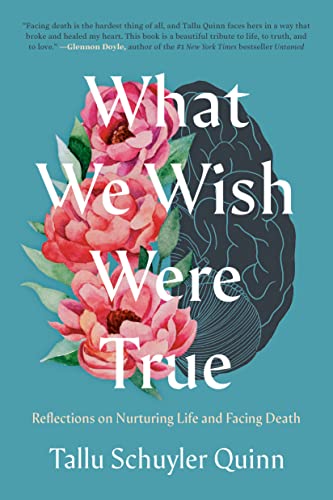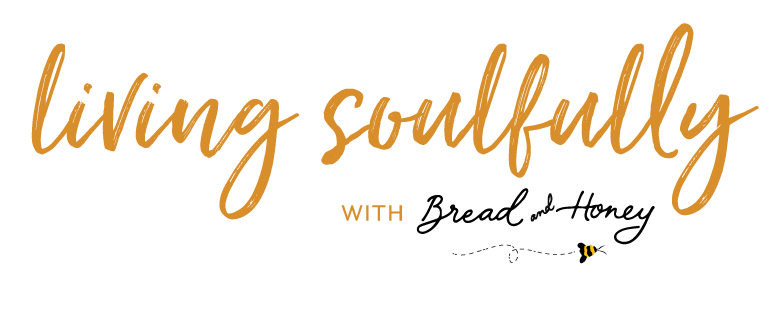What We Wish Were True

Today is the book release of my friend Tallu Schuyler Quinn’s masterpiece:
What We Wish Were True!
I have relished Tallu’s prose, poetry and prayers for fifteen years. As an artist, a theologian, but especially a lover of life, her words touch the sacred and deep in all of us. For me, she shares the rarified air of some of my favorite writers: the Psalmist, Mary Oliver, Maria Rainer Rilke and Wendell Berry. Each knew how to get to the heart of what truly matters concerning God, life, love, death and hope. What We Wish Were True is a love letter to everyone trying to embrace an authentic human spiritual experience. Tallu sets a metaphorical “Table in the Wilderness” and then serves her luminous truths of what it is to be flesh, bone and marvelous spirit.
Reading this book was a tender experience for me; a balm for my grieving heart. I felt Tallu close, as if she were sitting curled up next to me ready to share a laugh or collect my tears. The subject of dying touches the very marrow in all of us. I admire Tallu’s willingness to press on and write this book in the face of a terminal diagnosis. In her writing and in her daily life, she revealed her tenacious, creative and resilient spirit. Although the cancer impaired some of her physical capacities, it had no hold on her artistry, spiritual intelligence and determination to communicate hope. Tallu was not afraid to touch that unnerving, often heart-breaking edge between despair and hope, life and death. She knew the reward of a richer understanding of her humanity and divine spark. The glio cancer diagnosis gave her a sense of urgency to uncover what gave life meaning, purpose, joy, even holiness. For our benefit and hers, Tallu wrestled with the questions—the fears—that we each ponder in the secret of our hearts. The human condition is universal. All struggle with how to love and receive love, how to live beyond ourselves for a greater purpose, how to forgive and show mercy, how to fall and get back up, how to pray and connect with that which is larger than ourselves, how to listen and be heard, how to suffer and how to finally die. What she discovered is love carries us through it all and ever on.
She draws us into colorful vignettes of her life and mines them for nuggets of wisdom found from her challenging mission years in Nicaragua, to her joy of marriage, raising children (and even her chickens too), to canning heirloom tomatoes, kneading bread, planting gardens, setting tables, and feeding family, friends, refugees, strangers, to her tear-soaked internal conversations about dying and the loss too early of a life that she absolutely adored. No one wanted to suck the nectar dry more from this life than Tallu. Throughout the book, you watch her with muscle and grace hold the joy and the sorrow at once in the depth of her heart. Tallu had a gift in remaining soft, open and vulnerable to life. Her piece, “Up Here on The Shore,” is a masterclass on what truly matters and how to build a meaningful existence. She asks the question, “Have I done all I was meant to do up here on the shore? Have I paid attention? Did I adequately praise all there is to love here (p.32)?”
My favorite story, or at least the one that made me laugh out loud, was Chickenman. Soon after they were married, Tallu and Robbie were gifted six laying hens from a friend. They quickly gave them names like Fanny Lou and Lady Bird. They loved these chickens. One night several did not come home. Robbie searched the whole neighborhood late into the night for those rascals. Did they fly the coop? Did they suffer a terrible coyote fate? Tallu and Robbie went to bed in despair, convinced they were not ready to be chicken parents. The next morning, Robbie visited the coop to find all six chickens prancing about. They had been in the coop all along. Tallu concluded, “We spend so much time looking for what’s right before us, in front of us, inside us. We search God, for ways to be faithful, for something to deliver us from present worry and strife. It’s not wasted time, but when we catch a glimpse of God living right where we live, we remember our deliverance has already been sent (p 101).”
I enjoyed The Kissing Bug where Tallu shares a family dinner table game from her childhood. Tallu’s brother Roy would leave the dinner table, claiming to go to the bathroom, slip undetected under the table, and give each person a kiss on the knee. Tallu’s mom Sarah would squeal with joy, “Oh! It’s the kissing bug! He’s come to visit us again!” After completing the love mission, Roy would return to the table as if nothing had happened. But everything that truly mattered in the world had happened! Nothing compares to knowing you are loved. We should never wait to communicate love. Larkspur was especially poignant as I was a participant in her burial at Larkspur Conservation. It has been one of the most profound experiences of my life. Tallu showed us how to live the deep and sacred truth while alive, but also how to make the final goodbye most holy. She dueled death with courage, peace and a heart filled with divine promises. In Going Back to God, she said, “I think about how my purpose may be the same in death as it continues to be in life—surrendering to the hope that our weaknesses can be made strong, that what is broken can be made whole (128).” In The Salmon, she speaks aloud what most of us think but are paralyzed to voice: “And the truth is I am so scared to die. I want to be strong and enter into all of this gracefully, but I am afraid (143).” She observes the harsh truth that there is no way around death only through it for all of us. I admire how she took her leave. What I can tell you as her friend and as recorded in her writings is that no matter how dark and despairing life’s circumstances, she worked hard to find her way back into the land of hope. “We have to practice what we hope for,” she concludes. “As if what we hope for might be possible (164).” I would also add that Tallu left room for God to do the unexpected; she was confident in the imagination of her Creator.
Prepare to laugh, self-reflect, pray, weep, grieve, have necessary soul-stretching conversations. Hopefully you and I will regard our lives with more reverence, live more fully in the present and be thankful for the whole of it.
Join me this Tuesday evening for a special event organized by Parnassus Books and hosted by Harpeth Hall School to hear some of my favorite authors read from Tallu’s book. I also invite you to listen to my Soulful 7 Conversation below with Tallu so you can see her smile and hear her tender voice!



Amey Warder
April 18, 2022 at 5:35 amOrdering now. I wish I could be with you all to gather and celebrate her work on Tuesday.
Xox
Anne
April 18, 2022 at 5:45 amBeautiful, intimate tribute. Grateful you had such a sister in Christ & in life. Surely God will staff his heavenly kitchen with the two of you. Chefs/bakers to the angels and to your fellow friends and family. ❤️ Can you imagine the Lord’s table? Everyone will finally be fed.
Jennifer Puryear
April 18, 2022 at 6:15 amI will be out of town Tuesday but am very glad to know about this book, and will read it. Thank you Farrell – xoxo
Diane Tucker
April 18, 2022 at 11:30 amBeautiful story telling as usual by you. Loved your vignettes at the end of yesterday’s Easter service! Would love to there tomorrow night but not going to any places with crowds (Covid). Will be with all of you in spirit! Know there will circles of Angels surrounding all who attend. Saw Robbie on “Talk of the Town” this morning. Love that Lullah is going to be signing books! hugs!
Ramsey Corn
April 18, 2022 at 11:50 amCan’t wait to read this!!! ❤️❤️❤️❤️